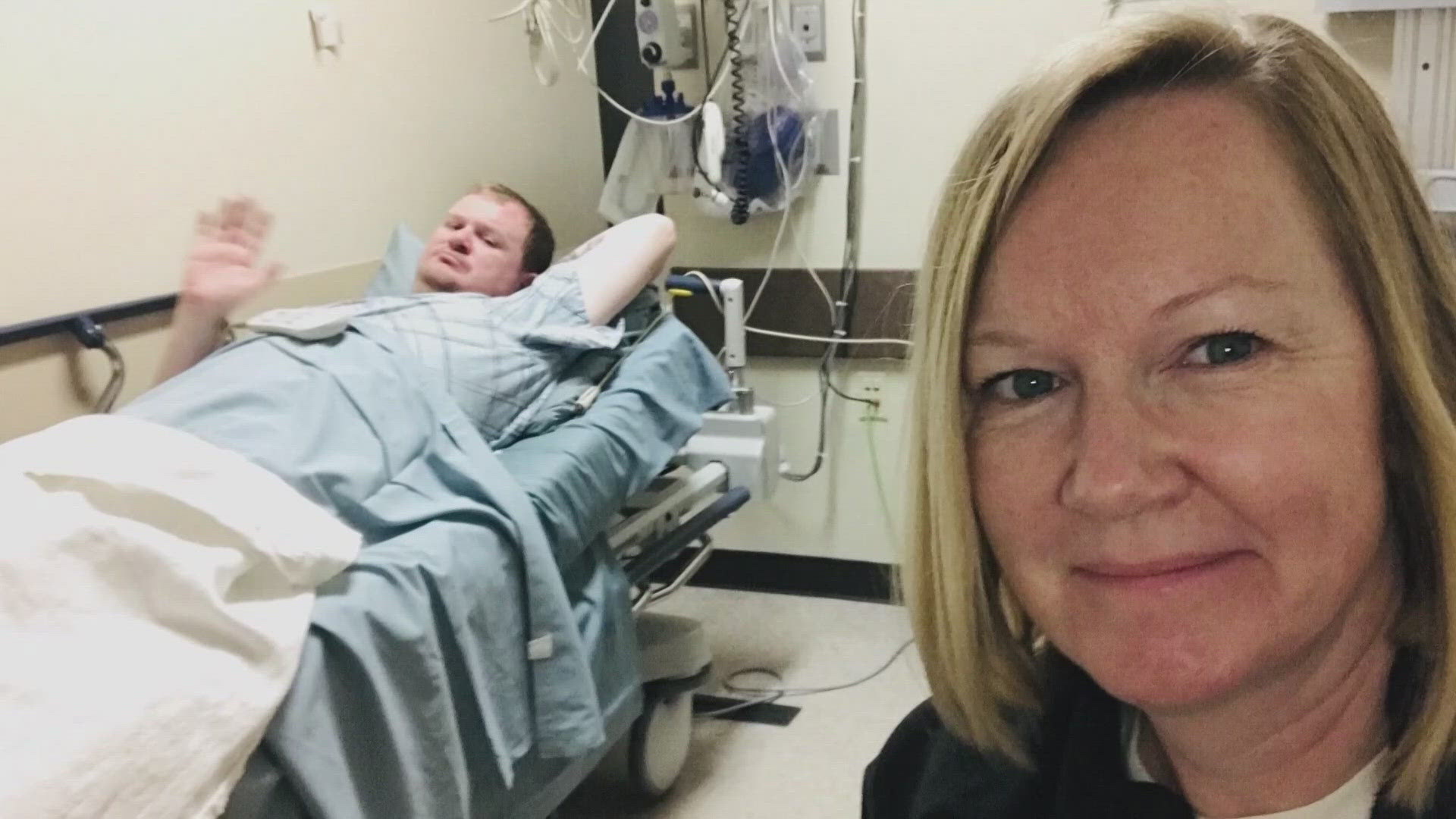JACKSONVILLE, Fla. — 14.3 million Americans are the primary caregivers for an injured veteran and that number has nearly tripled over the past 10 years according to an estimate by RAND.
That information was released by RAND and the Elizabeth Dole Foundation to underscore the need for funding and resources for people who care for disabled veterans after they're discharged from a hospital. Jennifer Jenkins traveled from Jacksonville to Washington D.C. to fight for more resources for caregivers of our military community after being the primary caregiver for her brother since 2005.
"He enlisted right after 9/11 while he was still a senior in high school," said Jenkins, "he was 17 and I was his legal guardian so I signed his enlistment papers with him."
Jenkins' younger brother James Smith served in the Army and was assigned to a combat brigade in Mosul, Iraq. That's where he was injured by an IED.
"He suffered damage to his brain, traumatic brain injury, damage to his spine, hearing, lost vision," said Jenkins, who stayed by her brother's side through 23 surgeries.
"I didn't realize how long the rest of our lives would be, how long I would be a caregiver and I didn't think about taking care of myself," said Jenkins, "I just plunged into the role of being a caregiver."
According to RAND's report titled "America's Military and Veteran Caregivers: Hidden Heroes Emerging from the Shadows" 84% of post-9/11 caregivers report high levels of stress, 44% of caregivers have no health insurance themselves and 10% of post-9/11 caregivers have had thoughts of suicide because of the burden of being a caregiver.
"I myself couldn't work fulltime for nearly a decade, there simply weren't enough hours in the day to take care of my brother and have a job," said Jenkins, who also cared for a son who was in third grade at the time of her brother's injury.
Her brother made great strides through Wounded Warrior Project's Independence Program following the injury, but Jenkins knows the financial and emotional struggles their family went through to get to this point. That's why she was in Washington DC to push for legislation to increase resources for caregivers who are on the front lines of the rest of their veteran's life.
"It's hard to watch your sibling go through something so terrible and so difficult," said Jenkins, "but also, he was so proud to serve, so proud to support his country in anyway he could. I appreciate the good times a lot more now because I know how hard we worked to be a healthy family."
Based on the report, RAND and the Elizabeth Dole Foundation have multiple recommendations including an increase in mental health and substance abuse treatment for caregivers and their children as well as integrating caregivers into the veteran's health care team.
More information about resources provided by Wounded Warrior Project can be found here.

